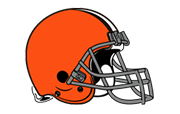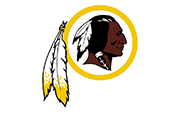As you may know, I have one tattoo: a rendering of the Detroit skyline on my right arm. I grew up just outside the Motor City, and it’s where I first became passionate about the potential of, and challenges facing, the American city. Today, Detroit remains a fascinating place, and our data this week underscores just where Philly is in our effort to remake our city for modern times.
Like many other cities, we stack up well against Detroit in the chart below, winning every category—but only marginally so. Our data shows that, yes, we’re a city on the rise, but also that not much separates us from Detroit. This, then, is a reminder that we’re in a critical moment for the continued transformation of Philadelphia.
“If you were to remove from Philadelphia 200,000 college-educated, middle-to upper-middle income people, we would be Detroit,” says Professor Richardson Dilworth of Drexel’s Center for Public Policy. “It’s not inconceivable. We lost about 100,000 people every decade from 1950 to 2000—and since that is net loss, it’s actually understating the loss of upper-income people. If that were to happen, we would most likely also be facing the same financial crisis that Detroit has had to face: a bankruptcy that put current city residents, retirees getting pensions from the city, and the holders of municipal bonds all in conflict with one another.”
The good news is that our trajectory appears to be heading in a more positive direction. But we need to continue the progress. Dilworth points to last year’s “State of the City” report, in which Pew Charitable Trusts ranked Philadelphia against nine comparable cities: Washington, Boston, Chicago, Phoenix, Houston, Baltimore, Pittsburgh, Cleveland, and Detroit. Among these cities in 2013, Detroit had the lowest median family income ($24,820) but Philadelphia had the third lowest ($36,836), beating only Cleveland and Detroit. Likewise, Philadelphia also beat Detroit in terms of the percentage of population born outside the US (12.7 percent to 5 percent), but finished in the bottom half of the category overall.
So we stack up well against Detroit, but we still have work to do!
Detroit’s Idea We Should Steal: Greening Vacant Land
For the last three years, Detroit has reimagined once blighted neighborhoods thanks to a greening strategy that, experts say, could turn the city into a global showplace for how struggling cities can capitalize on shrinking populations.
There are about 120,000 vacant lots in Detroit, the result of the city’s population loss of about 1.1 million people over the last 50 years. Throughout the city, there are roughly 24 square miles of empty real estate—room enough to fit all of Newark, New Jersey, and half of Miami.
And so the city amended its zoning ordinance to allow urban agriculture as a legally-regulated land use in the city. This has birthed a vibrant Do It Yourself urban ag culture, spawning small businesses throughout the city. “What this means is that people can now buy vacant property from the city for the express purpose of urban agriculture—including selling ag products,” says Claire Herbert, assistant professor of sociology at Drexel, who recently relocated here from Detroit. “Previously, one could only buy property if they planned to build on it or if it was adjacent to another property they owned.”
Throughout the city, empty lots are being turned into apple orchards, cider mills, indoor and outdoor farms, and greenhouses. Most importantly, its residents are stepping up and making things where before there was nothing. As Detroit continues to bounce back, there will continue to be lessons for the rest of us, especially here in Philly, where we have over 40,000 empty lots ripe for planting. Imagine those lots as small urban farms, not only feeding the surrounding communities, but also providing much-needed work and income for the newly-minted farmers.
Next week, we travel to the nation’s capitol to play the team from Washington, D.C.
Connor Barwin is the Eagles defensive end and runs the Make The World Better foundation, which works to refurbish city parks.
Results

PhiladelphiaEagles |
|

DetroitLions |
|
# of B Corporations
27 |
7 POINTS
Eagles |
# of B Corporations
0 |
|
% Graduated high school in last school year
65 |
7 POINTS
Eagles |
% Graduated high school in last school year
64.5 |
|
Diversity Index
0.34 |
7 POINTS
Eagles |
Diversity Index
0.66 |
|
% Bike to work
1.9 |
7 POINTS
Eagles |
% Bike to work
0.8 |
|
% Acres of park space
13 |
7 POINTS
Eagles |
% Acres of park space
6.4 |
|
Violent crime per 1,000 residents
10.2 |
7 POINTS
Eagles |
Violent crime per 1,000 residents
19.9 |
|
% Voted in last mayoral election
25.5 |
7 POINTS
Eagles |
% Voted in last mayoral election
25.38 |
|
% Below poverty
26 |
7 POINTS
Eagles |
% Below poverty
39.3 |
|
Public transportation score
67 |
7 POINTS
Eagles |
Public transportation score
38 |
|
Final Score
63 |
Philadelphia
Eagles |
Final Score
0 |
Sep. 11 |
63-0
Eagles |

Browns |
Sep. 19 |
28-35
Bears |

Bears |
Sep. 25 |
35-28
Eagles |

Steelers |
Oct. 09 |
63-0
Eagles |

Lions |
Oct. 16 |
28-35
Redskins |

Redskins |
Oct. 23 |
28-35
Vikings |

Vikings |
Oct. 30 |
35-28
Eagles |

Cowboys |
Nov. 06 |
14-49
Giants |

Giants |
Nov. 13 |
56-7
Eagles |
Falcons |
Nov. 20 |
35-28
Eagles |

Seahawks |
Nov. 28 |
35-28
Eagles |

Packers |
Dec. 04 |
35-28
Eagles |

Bengals |
Dec. 11 |
28-35
Redskins |

Redskins |
Dec. 18 |
49-14
Eagles |

Ravens |
Dec. 22 |
14-49
Giants |

Giants |
Civic Record:
EAGLES |
Wins
9 |
Losses
4 |
Upcoming Games:
For more information on this data, see the Civic Season Explained page.
Note: The Eagles play Washington, D.C., New York and Dallas twice this season, but we only count each city once in the Civic Record.




